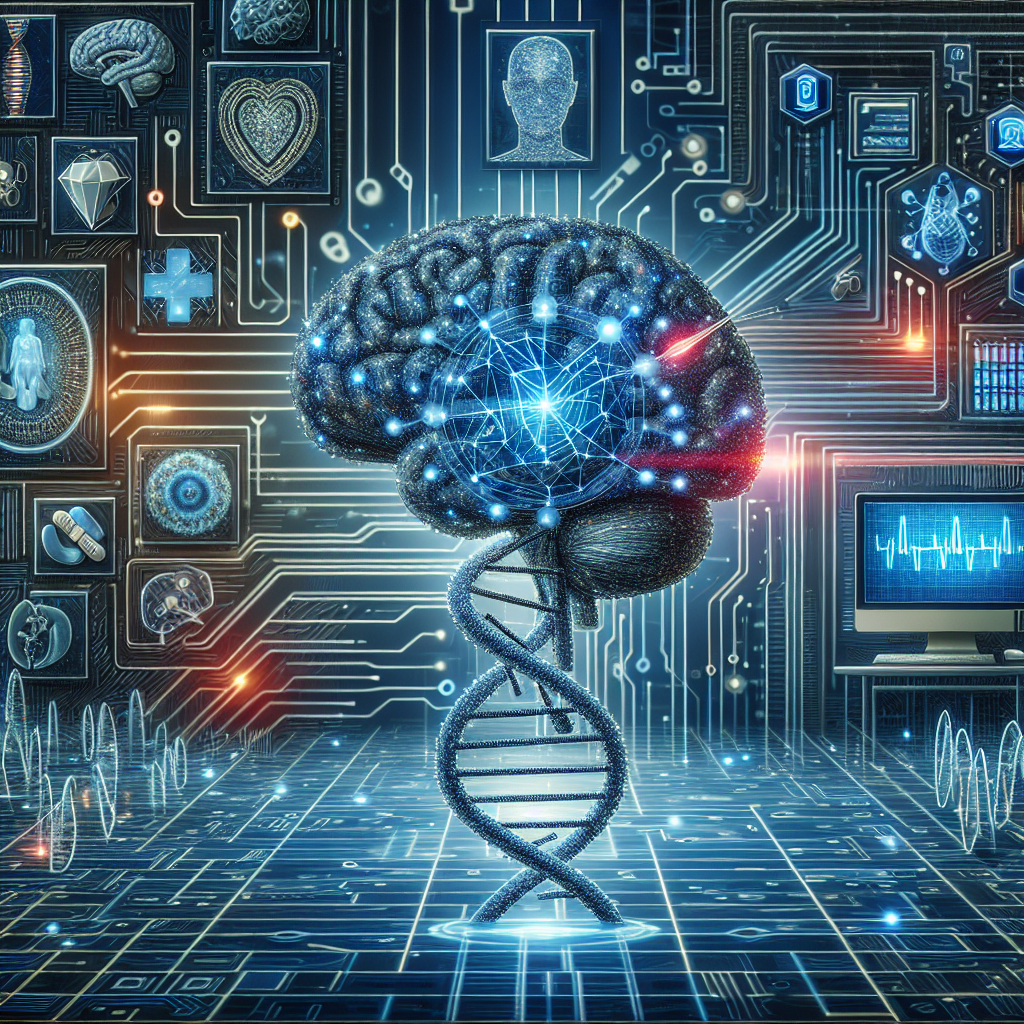AGI in Healthcare: How Artificial General Intelligence is Transforming Medicine
Artificial General Intelligence (AGI) is a branch of artificial intelligence that aims to create machines capable of performing any intellectual task that a human can do. In recent years, AGI has been making significant advancements in the field of healthcare, revolutionizing the way medical professionals diagnose, treat, and manage diseases. From analyzing medical images to predicting patient outcomes, AGI is transforming medicine in ways that were once thought impossible.
In this article, we will explore the impact of AGI in healthcare and how it is revolutionizing the field of medicine. We will also address common questions and concerns about AGI in healthcare and discuss the potential benefits and challenges associated with its implementation.
The Role of AGI in Healthcare
AGI is revolutionizing healthcare by enabling medical professionals to leverage the power of artificial intelligence to improve patient outcomes and streamline healthcare processes. With the ability to analyze vast amounts of data and make complex decisions, AGI is transforming the way medical professionals diagnose, treat, and manage diseases.
One of the key areas where AGI is making a significant impact is in medical imaging. AGI algorithms are now able to analyze medical images such as X-rays, MRIs, and CT scans with a level of accuracy and speed that surpasses human capabilities. By using AGI to analyze medical images, medical professionals can quickly and accurately diagnose conditions such as cancer, heart disease, and neurological disorders, leading to earlier detection and more effective treatment.
In addition to medical imaging, AGI is also being used to predict patient outcomes and personalize treatment plans. By analyzing patient data such as genetic information, medical history, and lifestyle factors, AGI algorithms can predict how a patient is likely to respond to a specific treatment and recommend personalized treatment plans that are tailored to the individual patient’s needs.
Furthermore, AGI is revolutionizing healthcare by improving the efficiency and accuracy of administrative tasks such as billing, scheduling, and patient record management. By automating these tasks, AGI can help reduce administrative burdens on healthcare providers and improve the overall quality of care for patients.
Benefits of AGI in Healthcare
There are several benefits of using AGI in healthcare, including:
1. Improved Accuracy: AGI algorithms can analyze large amounts of data with a level of accuracy that surpasses human capabilities, leading to more accurate diagnoses and treatment plans.
2. Faster Diagnosis: By using AGI to analyze medical images and patient data, medical professionals can quickly diagnose conditions and initiate treatment, leading to better patient outcomes.
3. Personalized Treatment: AGI algorithms can analyze patient data to predict how a patient is likely to respond to treatment and recommend personalized treatment plans that are tailored to the individual patient’s needs.
4. Streamlined Healthcare Processes: AGI can automate administrative tasks such as billing, scheduling, and patient record management, improving the efficiency of healthcare processes and reducing administrative burdens on healthcare providers.
Challenges of AGI in Healthcare
While AGI has the potential to revolutionize healthcare, there are also several challenges associated with its implementation, including:
1. Data Privacy and Security: AGI algorithms rely on vast amounts of patient data to make accurate predictions and recommendations. Ensuring the privacy and security of this data is essential to protect patient confidentiality and comply with regulatory requirements.
2. Ethical Concerns: As AGI algorithms become more sophisticated, there are ethical concerns about how they are used in healthcare. For example, there are concerns about bias in AI algorithms and the potential for AGI to replace human healthcare professionals.
3. Regulatory Compliance: Healthcare regulations are complex and vary by region. Ensuring that AGI systems comply with regulatory requirements is essential to avoid legal issues and protect patient safety.
4. Integration with Existing Systems: Integrating AGI systems with existing healthcare systems can be challenging, as these systems are often complex and have different data formats and standards. Ensuring seamless integration is essential to maximize the benefits of AGI in healthcare.
FAQs about AGI in Healthcare
Q: What is the difference between AGI and narrow AI in healthcare?
A: AGI aims to create machines that can perform any intellectual task that a human can do, while narrow AI focuses on specific tasks such as image recognition or natural language processing. In healthcare, AGI is used to analyze vast amounts of data and make complex decisions, while narrow AI is used for specific tasks such as medical imaging analysis.
Q: How is AGI being used in medical imaging?
A: AGI algorithms are now able to analyze medical images such as X-rays, MRIs, and CT scans with a level of accuracy and speed that surpasses human capabilities. By using AGI to analyze medical images, medical professionals can quickly and accurately diagnose conditions such as cancer, heart disease, and neurological disorders.
Q: What are the potential benefits of using AGI in healthcare?
A: The potential benefits of using AGI in healthcare include improved accuracy in diagnosis and treatment, faster diagnosis, personalized treatment plans, and streamlined healthcare processes. AGI has the potential to revolutionize healthcare by improving patient outcomes and reducing administrative burdens on healthcare providers.
Q: What are the challenges of implementing AGI in healthcare?
A: Some of the challenges of implementing AGI in healthcare include data privacy and security concerns, ethical considerations, regulatory compliance issues, and integration with existing healthcare systems. Overcoming these challenges is essential to maximize the benefits of AGI in healthcare.
In conclusion, AGI is transforming healthcare by enabling medical professionals to leverage the power of artificial intelligence to improve patient outcomes and streamline healthcare processes. By using AGI to analyze medical images, predict patient outcomes, and personalize treatment plans, medical professionals can provide more accurate diagnoses and treatments, leading to better patient outcomes. While there are challenges associated with implementing AGI in healthcare, the potential benefits are vast, and AGI has the potential to revolutionize the field of medicine in ways that were once thought impossible.

